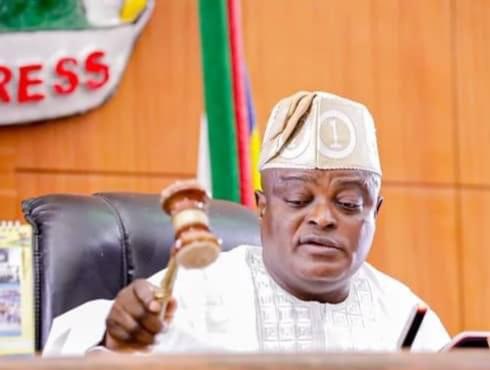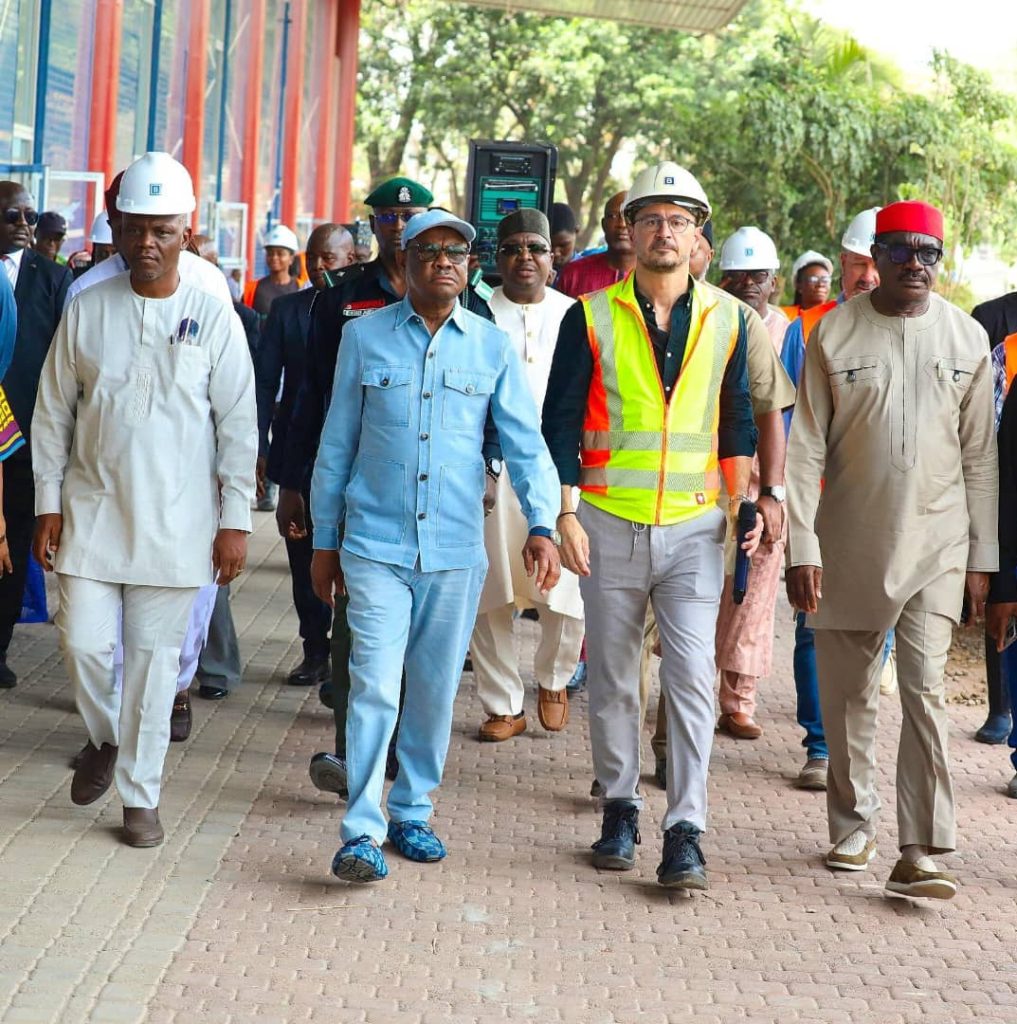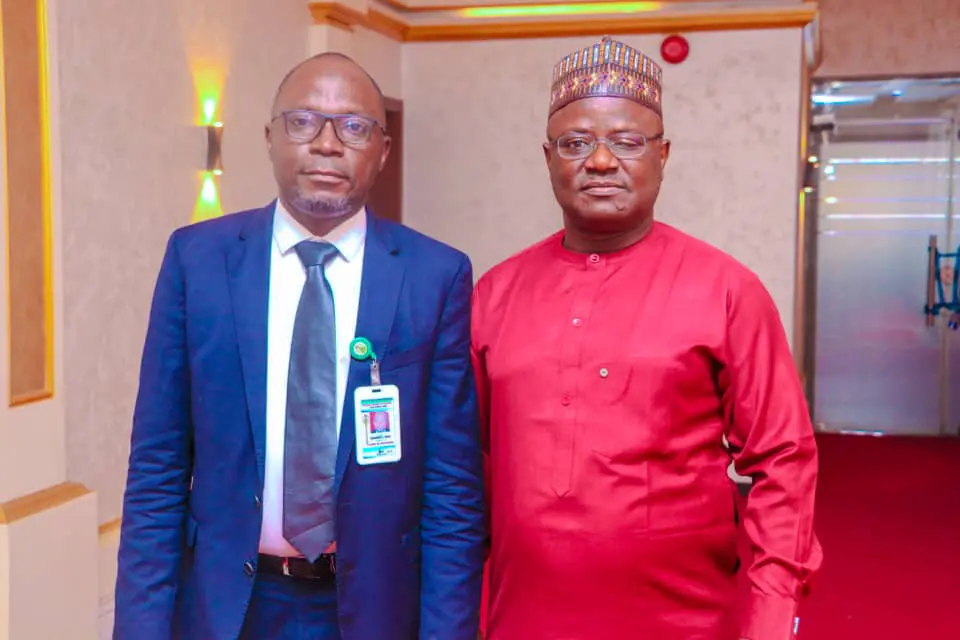Politics
Lagos Assembly Set To Replace LCDAs With Administrative Areas
Published
6 months agoon
By
Ekwutos Blog
…Gives Governor Power To Suspend Erring Chairmen, Vice Chairmen
The Lagos State House of Assembly is set to replace the current 37 Local Council Development Areas (LCDAs) in the state with Administrative Areas.
This is contained in a Bill for a Law to provide for Local Government’s System, Establishment And Administration And to Consolidate All Laws On Local Government Administration And Connected Purposes, which went through public hearing on Thursday.
The bill specifies that the system of Local Government will be by democratically elected Local Governments.
According to the Bill, there shall be twenty (20) Local Government Areas in the State as specified in the Constitution of the Federal Republic of Nigeria, 1999.
The bill is coming on the heels of the financial autonomy recently granted the 774 local governments in the country by the Supreme Court, which specified that money would not be released to any local government, which has no democratically elected executive members.
“As from the commencement of this Law, the Lagos State Independent Electoral Commission (LASIEC) shall conduct elections into the twenty (20) Local Government Councils in the state as recognised by the Constitution of the Federal Republic of Nigeria, 1999 (as altered).
“The twenty (20) Local Government Councils shall have designated Area Administrative Offices as listed in the 1st Schedule to this Law for effective and efficient local government administration in the State.
“Each Local Government Area will have its headquarters in the place names in the third column of Schedule 1 to this Law.
“There shall be thirty-seven (37) Area Administrative Councils in the State with the names specified in Schedule 11 of the Creation of Local Government Areas (Amendment) Law of 2004,” the Bill stated.
It was added that each Local Government’s Administrative Council shall be headed by Area Administrative Secretary, who shall be appointed by the Governor subject to the confirmation of the House.
The Bill stated further that each Area Administrative Council shall be funded by the Local Government Area under which it falls.
Moreso, it was stated that each Local Government Area has the power to delegate any of its functions to the Area Administrative Council falling within the territory of the Local Government Area.
“Notwithstanding anything to the contrary in any other law, each Area Administrative Council will retain all the rights, interests, obligations and liabilities, which became vested in or attached to it under any contract or instrument, or on law or equity, all the time it was operating as a Local Government Area.
“Subject to the provisions of the Independent National Electoral Commission (INEC) Act, the State Electoral Commission, LASIEC, shall divide each Local Government Area into such number of wards, not being less than twelve (12) or more than forty (40) as the circumstances of each Local Government Area may require,” the bill read.
The proposed law, in Section 30, stated that the Governor shall have the right to suspend any Chairman or Vice Chairman or any elected official/political appointee, which it said shall at the expiration of such suspension resume office and shall notify the House upon resumption of office.
The law however, repealed the Local Government Administration Law Ch L89 Laws of the Lagos State 2015 and the Local Government Administration (Amendment) Law, 2016.
Stakeholders at the event, including His Royal Majesty, the Ayangburen of Ikorodu, Oba Kabir Shotobi, the Chairman of Odi Olowo/Ojuwoye Local Council Development Area (LCDA), Hon Rasak Ajala, a former commissioner in the state, Hon Oyinlomo Danmole and Senator Musiliu Obanikoro, faulted some aspects of the bill.
Specifically, Hon. Ajala faulted the law, saying that it would lead to underdevelopment in the grassroots.
The Chairman stated that the financial autonomy granted local governments should not change anything in the arrangements in Lagos State, which he said was fought to the Supreme Court then.
According to him, “even with LCDAs, the money meant for a particular area would be shared by the main local government and the LCDAs, so changing them to development areas would have no effect.
“The Assembly should leverage on the powers conferred on them by Section 7 sub-section 1 of the Nigerian Constitution and allow the LCDAs to be,” he said.
This was also the position of HRM, Oba Shotobi, who insisted that the LCDAs are aiding developments in the grassroots.
In his comments, Senator Musiliu Obanikoro faulted the Assembly for not giving the public hearing proper publicity, saying that the problems in the local governments are deep and profound.
“The public hearing is being done without due consultations. In a democratic setting, the people are more important. I can’t even see any leader of our party, the All Progressives Congress (APC), here. What we enjoyed as local governments chairmen are no longer there,” he said.
The Speaker of the House, Rt. Hon Mudashiru Ajayi Obasa, said earlier in his speech delivered by his Deputy, Hon Mojisola Meranda, that “we are gathered here to consider and reflect on a bill that seeks to further enhance how our third tier of Government should be administered.”
Obasa recalled that just about two weeks back, people were also gathered to deliberate on the electoral bill for the Local government elections which he said is the first right step before the House could go into how the local government should function.
“This Bill has passed the preliminary stages and the House is hereby subjecting it to public appraisal in our transparent convention.
“At this stage, we subject the bill to public assessment, gathering public observations and thoughts to reflect on them in the next stage of the bill.
“The bill is seeking to consolidate all laws on Local Government administration. The law, when passed, will allow the local government function optimally with strict adherence to the rule of law and separation of powers within the Local Government.
“The bill clearly states the functions of the Chairman, Vice chairman, Legislative council and other local government functionaries.
“The Bill also makes emphasis on creation of thirty–seven Area administrative councils, in addition to the original twenty Local Government listed in the bill, the councils would be headed by Area administrative secretaries to be appointed subject to the approval of the House,” he said.
The Speaker stressed that the bill also made mention of four years tenure for the elective offices in the local government, which he said has finally removed the ambiguity of the past as regards tenure of these elective officers.
The bill, he said, has elaborated upon all that needs to be done for an effective administration of the Local government be it, declaration of assets, nomination of a chairman, removal of a chairman or vice chairman, discharge of functions of the chairman, local government area supervisors appointees, Executive powers of the local government, street naming and many more.
The Chairman of the House Committee on Local Government Administration, Chieftaincy Affairs and Rural Development, Hon Sanni Family Okanlawon, said that the purpose of the public hearing was to allow the people make meaningful contributions to the bill before it is passed into law by the assembly.
You may like
Politics
Wike hails 95% implementation of FCT 2024 budget, unveils key projects
Published
2 hours agoon
April 14, 2025By
Ekwutos Blog
The Minister of the Federal Capital Territory (FCT), Barr. Ezenwo Nyesom Wike, has announced a landmark 95 percent implementation of the 2024 statutory budget, describing the achievement as unprecedented in the history of the FCT.
Wike made this known during a media briefing after inspecting several critical infrastructure projects across the Territory, including major roads at Life Camp and Katampe, as well as the ongoing renovation of the International Conference Centre, Abuja.
“I can tell you we’ve done not less than 95 percent of the budget implementation. That is historic. It has never happened before. And if you look at the projects there, you will see that there is no project that is in the 2024 budget that we have not touched,” he stated.
He attributed the progress to the National Assembly’s decision to extend the lifespan of the 2024 FCT statutory budget until June 2025, which he said enabled the Administration to sustain funding and accelerate delivery on major projects.
Wike also revealed that the 2025 statutory budget had already been submitted to the National Assembly and expressed hope that its timely passage would maintain the current momentum and support the completion of key infrastructure across the FCT.
During the tour, the Minister expressed satisfaction with the pace and quality of work, commending contractors for adhering to timelines and maintaining high standards.
Among the projects visited was the 4-kilometer six-lane dual carriageway linking Life Camp Junction to Ring Road III, currently under construction by Julius Berger. Once completed, the road will significantly improve connectivity between the districts of Kado, Karmo, Gwarimpa I, Dape, Ido-Gwari, Saburi, and Dei-Dei.
Another major project nearing completion is the access road from Nnamdi Azikiwe Expressway (by N16) to the Judges’ Quarters in Katampe District. This route will also connect the N20 (Wole Soyinka Way) in Jahi District with Katampe and Maitama, enhancing mobility in the area.
Wike expressed particular delight at the progress of the International Conference Centre renovation, which he described as rapidly advancing.
“These projects will be inaugurated by Mr. President during his second-year anniversary celebrations. We have gone to the International Conference Centre, which is almost ready. The first phase of the N5 will also be ready by the end of May,” he said.
Politics
Benue Govt moves to block Peter Obi’s visit amid Alia’s defection rumours
Published
3 hours agoon
April 14, 2025By
Ekwutos Blog
The Benue State Government is reportedly making moves to block a planned visit by Labour Party presidential candidate in the 2023 general election, Mr Peter Obi, to camps housing Internally Displaced Persons (IDPs) in the state.
Obi, whose post-election activities have prominently included humanitarian outreach to victims of violence across the country, was said to have planned a visit to some of the IDP camps in Benue.
The former Anambra State governor, in recent weeks, visited IDP camps in Plateau, Southern Kaduna and Nasarawa states, meeting with displaced families, donating relief materials and advocating for urgent government intervention.
His visit to Plateau State drew national attention after he held talks with Governor Caleb Mutfwang and visited victims of herdsmen attacks.
According to reliable sources, Obi’s team had reached out to the Benue State Emergency Management Agency (BSEMA) through its Executive Secretary, Sir James Iorpuu, to officially notify the agency and seek access to designated camps for the visit.
However, it appears the move has sparked a political storm within Benue’s corridors of power.
Top government officials reportedly advised Governor Alia against granting Obi access to the IDP camps, citing political undertones.
The visit, they argued, could be perceived as a calculated move by former Governor Samuel Ortom, a staunch supporter of Peter Obi during the 2023 presidential election, to revive his political relevance and embarrass the current administration.
Beyond the Ortom factor, sources also revealed that the decision to stop Obi’s visit was influenced by wider political calculations.
“It is believed that allowing Obi access at this time could fuel ongoing speculations that Governor Alia is considering leaving the All Progressives Congress (APC) amid tensions with some national leaders of the party.
“The governor is very conscious of his relationship with the Presidency and party hierarchy. Allowing Obi’s visit would not only trigger local political drama with Ortom but might also be interpreted in Abuja as a subtle alignment with the opposition at a time when Alia is battling internal party issues. This is not the kind of message he wants to send to the President.
“Such an association, especially with a high-profile opposition figure like Obi, could be politically damaging for Alia, who has been working to consolidate his hold on the state and maintain good standing with President Bola Tinubu’s administration,” a source told Ekwutosblog on Monday.
It would be recalled that in the February 25, 2023 presidential poll, Obi pulled a stunning performance in Benue State, securing over 308,000 votes, a figure that shocked many given the dominance traditionally enjoyed by the two major parties – APC and PDP.
His victory in the state was largely attributed to the support of Ortom and a groundswell of youth-driven, faith-based and middle-class backing.
Following this backdrop, sources disclosed that Governor Alia was convinced by his inner circle to forestall Obi’s visit to avoid reigniting political rivalries or offering Ortom and the Labour Party a platform to reassert influence in the state.
As a result, the governor reportedly instructed his Chief Press Secretary, Tersoo Kula, to issue a public statement cautioning against what it described as “unapproved high-profile visits” to the state.
“For anyone considering a visit to Benue State without the Governor’s knowledge, it is imperative to reconsider such plans, as the safety and security of individuals in this regard cannot be guaranteed,” he warned.
Though the statement fell short of directly naming Peter Obi, insiders confirmed that it was a veiled warning aimed at dissuading the former presidential candidate from proceeding with his proposed outreach.
One government source, speaking anonymously, said, “The governor is not comfortable with Obi’s visit, especially with the political undertones it carries.
“The camps are a sensitive issue and we cannot allow anyone to politicise the suffering of our displaced people.”
As of the time of filing this report, neither Obi’s camp nor the Labour Party has issued an official statement regarding the restriction.
However, a source close to the former governor disclosed that the visit was purely humanitarian and part of Obi’s ongoing national outreach to communities affected by violence and displacement.
Politics
Nasarawa Assembly confirms new clerk, deputy
Published
4 hours agoon
April 14, 2025By
Ekwutos Blog
The Nasarawa State House of Assembly resumed plenary on Monday after the Sallah break, confirming Mr. Ibrahim Abdulazeez Musa as the substantive Clerk of the House.
The confirmation was announced by the Speaker, Dr. Danladi Jatau, during proceedings in Lafia.
Musa had been serving in an acting capacity since December 6, 2023, following the ill health of the former Clerk, Mr. Ego Maikeffi Abashe, who passed away on March 1, 2025.
In the same session, the Speaker also announced the appointment of Mr. Paul Okugya as the Deputy Clerk of the House. Prior to his new role, Okugya served as Director of Protocol.
The Speaker congratulated both appointees on their elevation and wished them success in their new responsibilities.
Jatau also led members of the Assembly in observing a minute of silence in honour of the late Clerk, Mr. Abashe.
Meanwhile, two bills were introduced for first reading during the plenary session.
The first, a private member bill, titled “A Bill for a Law to Establish Lafia General Hospital and Other Related Matters Thereto,” was presented by Hon. Solomon Yakubu Akwashiki, who represents Lafia Central Constituency.
The motion was seconded by Barr. Esson Mairiga, member representing Lafia North Constituency.
The second bill on the order paper was “A Bill for a Law to Amend the Re-enacted Nasarawa State House of Assembly Service Commission Law 2023 and Other Incidental Matters Thereto.”
The motion for first reading was moved by the House Leader, Hon. Suleiman Azara, and seconded by the Minority Leader, Hon. Luka Iliya Zhekaba.
The bill has been scheduled for second reading on April 29, 2025, while deliberation on Hon. Akwashiki’s bill is slated for April 28, 2025.

PRESIDENT TINUBU CONDEMNS LATEST ATTACK IN PLATEAU, CHARGES GOVERNOR MUTFWANG WITH RESOLVING UNDERLYING COMMUNAL ISSUES

Wike hails 95% implementation of FCT 2024 budget, unveils key projects

Benue Govt moves to block Peter Obi’s visit amid Alia’s defection rumours
Trending

 Trending6 months ago
Trending6 months agoNYA demands release of ‘abducted’ Imo chairman, preaches good governance
- Business6 months ago
US court acquits Air Peace boss, slams Mayfield $4000 fine

 Politics6 months ago
Politics6 months agoMexico’s new president causes concern just weeks before the US elections
- Entertainment6 months ago
Bobrisky transferred from Immigration to FCID, spends night behind bars
- Entertainment6 months ago
Bobrisky falls ill in police custody, rushed to hospital

 Politics6 months ago
Politics6 months agoRussia bans imports of agro-products from Kazakhstan after refusal to join BRICS

 Politics6 months ago
Politics6 months agoPutin invites 20 world leaders
- Politics1 year ago
Nigerian Senate passes Bill seeking the establishment of the South East Development Commission.

